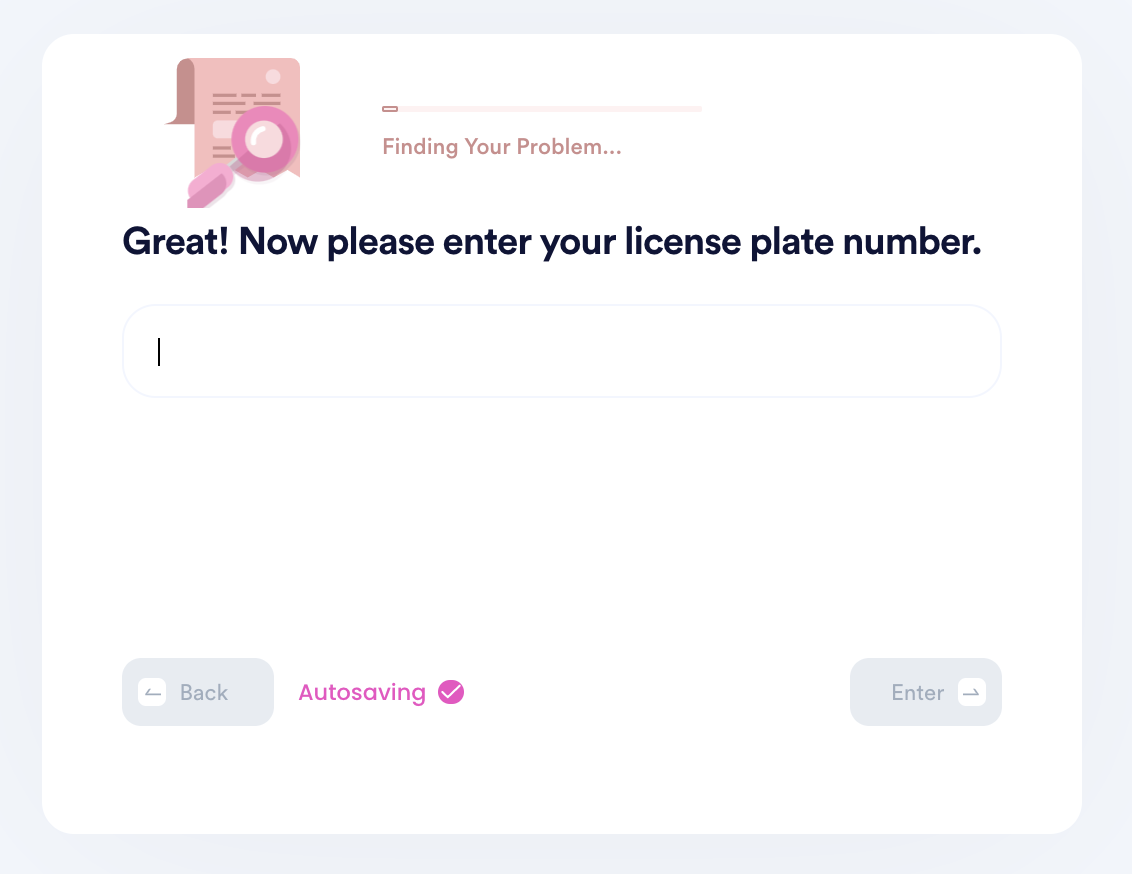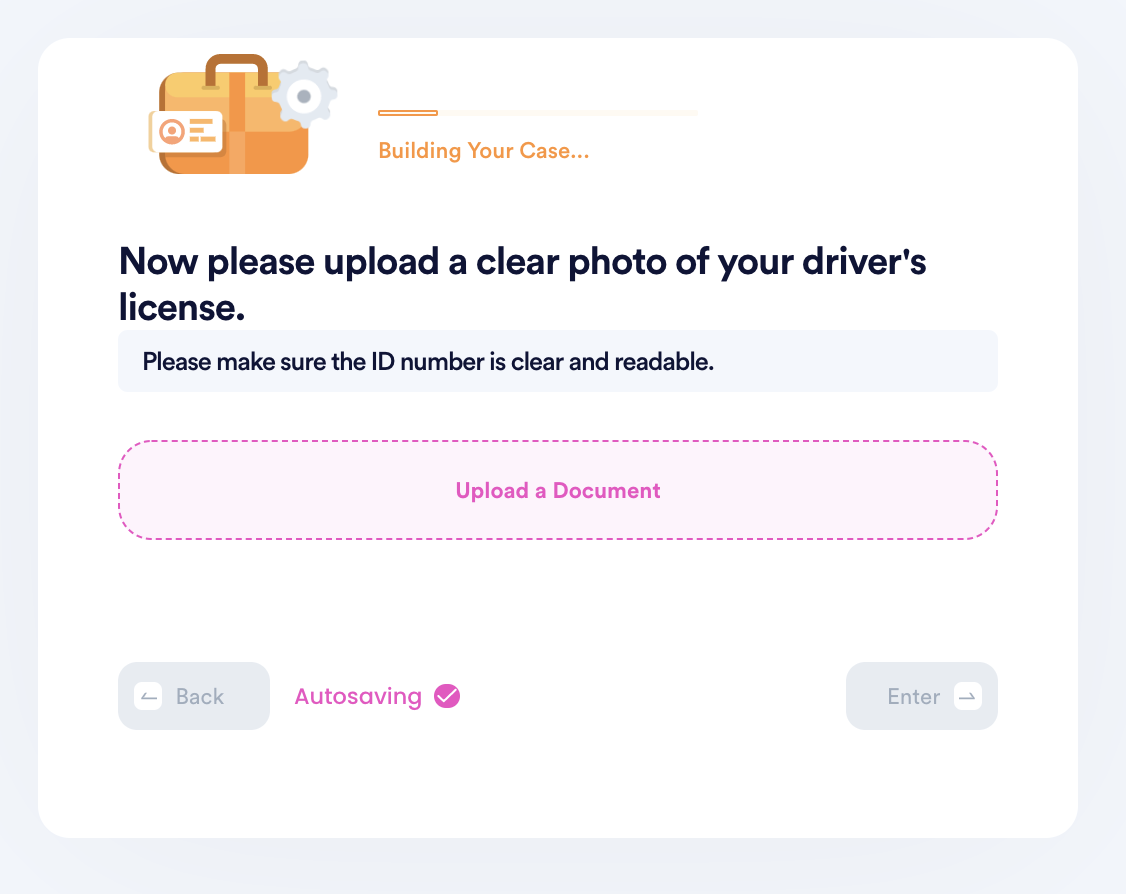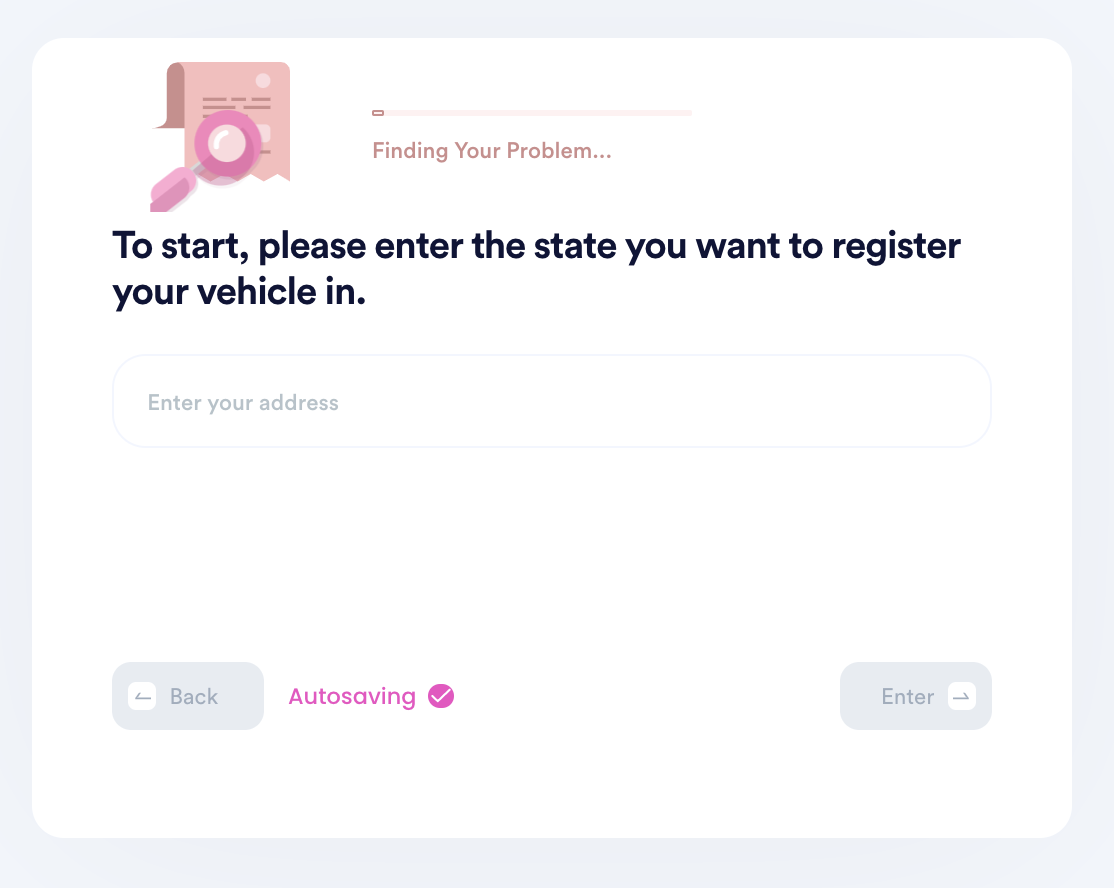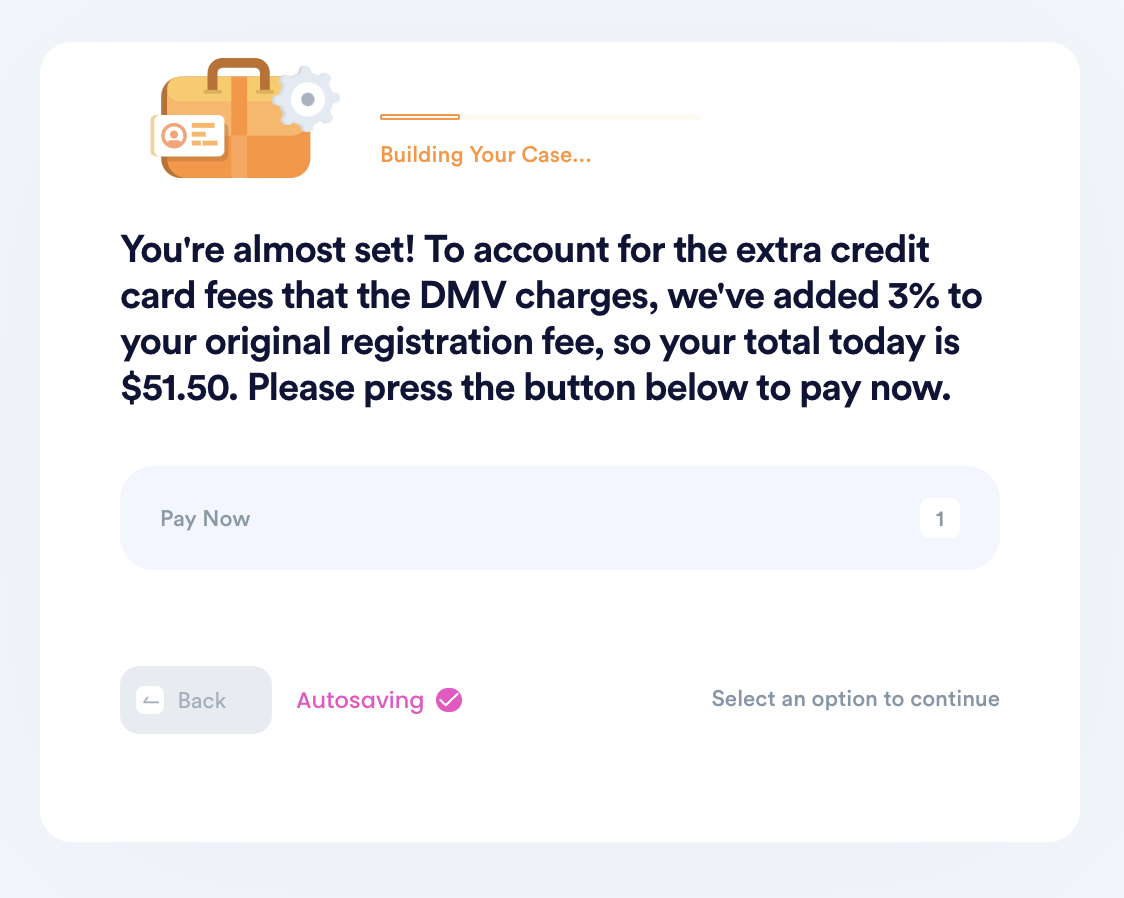Can I Renew My Husband's Car Registration Renewal? Here's What You Need to Know!
Is your husband too busy to get his car registration renewal? Has this fact left you worried about extra vehicle registration fees and potential tickets? Maybe you are one of the many people who are wondering, “”
Well, you're in luck. Not only do we have the answer, but we have a better solution for vehicle registration renewals AND what you need and how to do it.
Sure, you can run into your local BMV/DMV (depending on the state) with the required documents, but you'll typically find yourself waiting behind dozens of others in need of the same thing. Instead, DoNotPay is making the process quicker and much less complicated for registrants with the Car Registration Renewal product feature.
Here's what you need to know about doing it yourself versus using DoNotPay.
You Can Renew Your Husbands Car Registration, But You’ll Need These Documents
Most states allow . However, you will now have to show proof of identity for both you and your partner to complete the transaction.
Additional documents may be required depending on the state you're in, but for most states, you may only need the following documents in addition to the usual (meaning your husband's standard documents for registration):
- Your photo I.D. (not just yours — your husband's as well)
- Permission Letter from your husband
- Vehicle information such as an old copy of their registration or a renewal reminder
Does it Cost More to Renew Your Spouse's Vehicle Registration Renewal?
It doesn't typically cost extra to However, you should always check with your local DMV/BMV ahead of time to make sure you have enough money on hand to pay for the transaction.
Vehicle registrations often include one or more of the following fees:
- Plate / Registration Transfer
- Duplicate Registration
- Replacement Sticker
- Replace/Exchange 1 Plate (additional charges if two or more plates)
- Temporary Tag
- Mailing Fee
- Late fees if more than 30 days late
Research puts the average costs of car registrations at between $8 and $225.However, WPR reports that the highest registration fees in the United States go to Oregon, at about $268.50 to $636.50 for new cars and $122 to $306 for two-year renewals.
How to Renew Your Spouse's VRR on Your Own
To renew your spouse's vehicle registration renewal on your own, you will need to locate the nearest DMV/BMV in your area. We recommend checking online to discover what days and hours are busiest to try and avoid hour-long (or more) wait times. In fact, we recommend this because the national average for the United States is estimated to be 44 minutes.
And that's not including the time it would take to actually get started and complete the transaction.
To complete the transaction, you will need to have your husband's title(s) in hand. Then the general process will include:
- Presenting proof of vehicle ownership
- Your photo I.D. and your husband’s will need to be handed over
- You'll have several documents to sign (typically electronically)
- Pay all applicable fees at the time of the transaction
- You will get a temporary tag while the formal license plate is mailed to your husband's mailing address located on his registration.
Note that random registrants can be selected to prove they have car insurance in some states. This will not be the case for everyone, though.
Renewing Your Spouse's Registration With DoNotPay
with DoNotPay will be much like if you were renewing your own. You won't need additional documents such as your own like you would if you were running to the local DMV/DMV to register for your husband. It might even be convenient enough for your husband to get to on his own so you can check off other to-do's.
Either way, it'll require just 5 easy steps to get started:
- Go to the Renew Car Registrations product on DoNotPay.

- Answer a few questions about your current vehicle, including the license plate number, vehicle identification number, make and model, etc.

- Verify your identity with a state driver's license and registration documents.

- Decide how long you want to extend the renewal for (if your state offers multiple options)

- Pay the registration fee (or let us automatically calculate it if you aren't sure).

Car Registration Renewal With DoNotPay — By State
When , it's important that you keep in mind that fees and procedures vary from state to state. You must register in the state that your husband currently lives in.
For a helpful guide specific to your husband's state, click on one of the following in the table:
| Mississippi | Minnesota | Oklahoma | Ohio | Michigan |
| Oregon | Rhode Island | South Carolina | South Dakota | Tennessee |
| New Hampshire | Nevada | Nebraska | Montana | Missouri |
| New Mexico | Washington | New Jersey | Virginia | Vermont |
| North Carolina | Wyoming | New York | Wisconsin | West Virginia |
| Massachusetts | North Dakota | Pennsylvania | Utah | Texas |
| California | Alaska | Florida | Illinois | Indiana |
| Arizona | Alabama | Idaho | Iowa | Kansas |
| Arkansas | Colorado | Georgia | Maryland | Kentucky |
| Delaware | Connecticut | Hawaii | Louisiana | Maine |
In the meantime, check out other products DoNotPay has to offer when there's a lot on your plate. Our platform can help with everything from filing a complaint against a company and fighting workplace discrimination to getting licensing (fishing, hunting, marriage, etc.) and exploring your egg donor rights.
 By
By